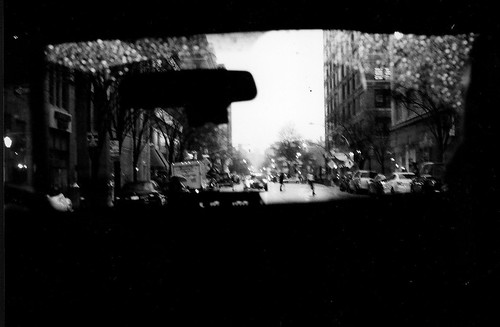
Older generations, quite unmindfully brand young people as socially irresponsible—it’s their favorite pastime to mull over the bygone glory days when the student body/youth in Bangladesh were socially more responsible. It is somewhat true that the youth loved taking charge in less complicated eras e.g. when somebody in the neighborhood fell ill, it was common for the next door youngster to rush her/him to the hospital. It would always be the band of young people who’d run the errands or do the chores whenever there was any kind of occasion in the neighborhood, be it a funeral or a wedding.
There has been a significant decline in social responsibility in the youth but it would be quite unfair to blame young people alone for this slump. A group of 20-somethings feel that the 21st century mindset and all the subtle and gradual changes that took place since the 90’s (starting from the way houses/apartments are designed to the education curricula) are mostly responsible for this downtrend. The new and transformed landscape (pigeon-hole apartments with no yards, gardens or parks keep people indoors most of the time) don’t bolster that kind of a communal feeling anymore. There is simply no space where people/neighbors can bond. Needless to say that the stringent academic curricula of schools and universities, the scramble for jobs, the rat race and hum drum of everyday life wear the youth down—make them too busy and too self-absorbed to think about social responsibilities. Researchers say a more highly competitive world has forced young people to become more individualistic. They care less about things that don't affect them directly.
I have a slightly different take on the issue which I will elaborate with personal anecdotes.
This girl sitting next to me at a wedding the other day was telling me that she along with a group of university friends turned vegan a few months back. She says it is not easy being a vegan in a country where meat, milk, eggs etc make up people’s everyday meals. But, the vegan diet she thinks can only validate her undying love and respect for all sentient beings. She politely refused the wedding food and told me that online vegan groups, workshops, vegan facebook friends from all over the world are a huge support and help with vegan information and recipes. Then there was this university club/group I ran into last week who were out on the streets raising awareness on recycling and going green, a movement they feel is vital for Bangladesh’s development. And my teenage cousin (19 years old), I heard just came back from Aatigram, Manikganj where she teaches English to preschoolers, a voluntary job she finds rewarding in more ways than one. And of course who can forget the numerous facebook groups, online student websites etc who came together in times of crisis— after the sidr, Aila, fire at Old Dhaka etc and tried to help in every other way—sometimes by raising relief and at times by talking to the victims, listening to their stories and helping them cope with the trauma.
The 20 something generation may be less radical than their predecessors who, say, took part in the1971 war or the 1952 language movement and became flashpoints for their times. But thanks in large part to the Internet, this generation is much more aware of the world. And because historical tragedies such as the 9/11 terrorist attack and Hurricane Katrina have scarred their youth and adolescence, experts see signs these young people are creating their own brand of social consciousness.
Social network users feel that the emergence of web blogs, Facebook awareness pages, donation websites/SMSs, online petitions etc changed the ways one would express political views, volunteer in community work and be socially responsible.
Yet, Curtis Gans of American University's Center for the Study of the American Electorate says that measurable declines in civic education, newspaper reading and knowledge of current events are other signs of a devaluing of civic involvement. Harvard public policy professor Robert Putnam, whose 2000 book Bowling Alone is about the decline of civic engagement and social connection, says volunteering is class-driven. "This whole recent spurt is largely concentrated among kids of the upper middle class. ... The have-nots are actually more detached than before. “Thus the very term ‘social responsibility’, is debatable in this age and time.
On the other hand, the role of the media must not be underestimated in its positive and negative influences on the youth. Advertising agencies, corporations and manufacturers all seek youth attention. The youth are the target audience/consumers of most producers. Even though satellite, cable TV, news paper, magazines, websites etc bring a plethora of news— it is of little wonder that young people choose to watch music channels, read sports news and visit celebrity websites instead—as these sources cater to all their entertainment needs and are designed keeping them/ their needs in mind. Hence, if mainstream youth culture is indeed irresponsible is it because they just happen to be that way or because they are given a choice between esoteric social responsibility and ceaseless, adrenaline gushing entertainment?



